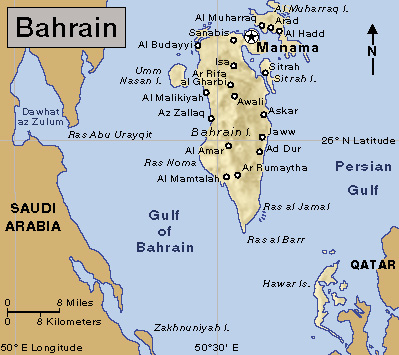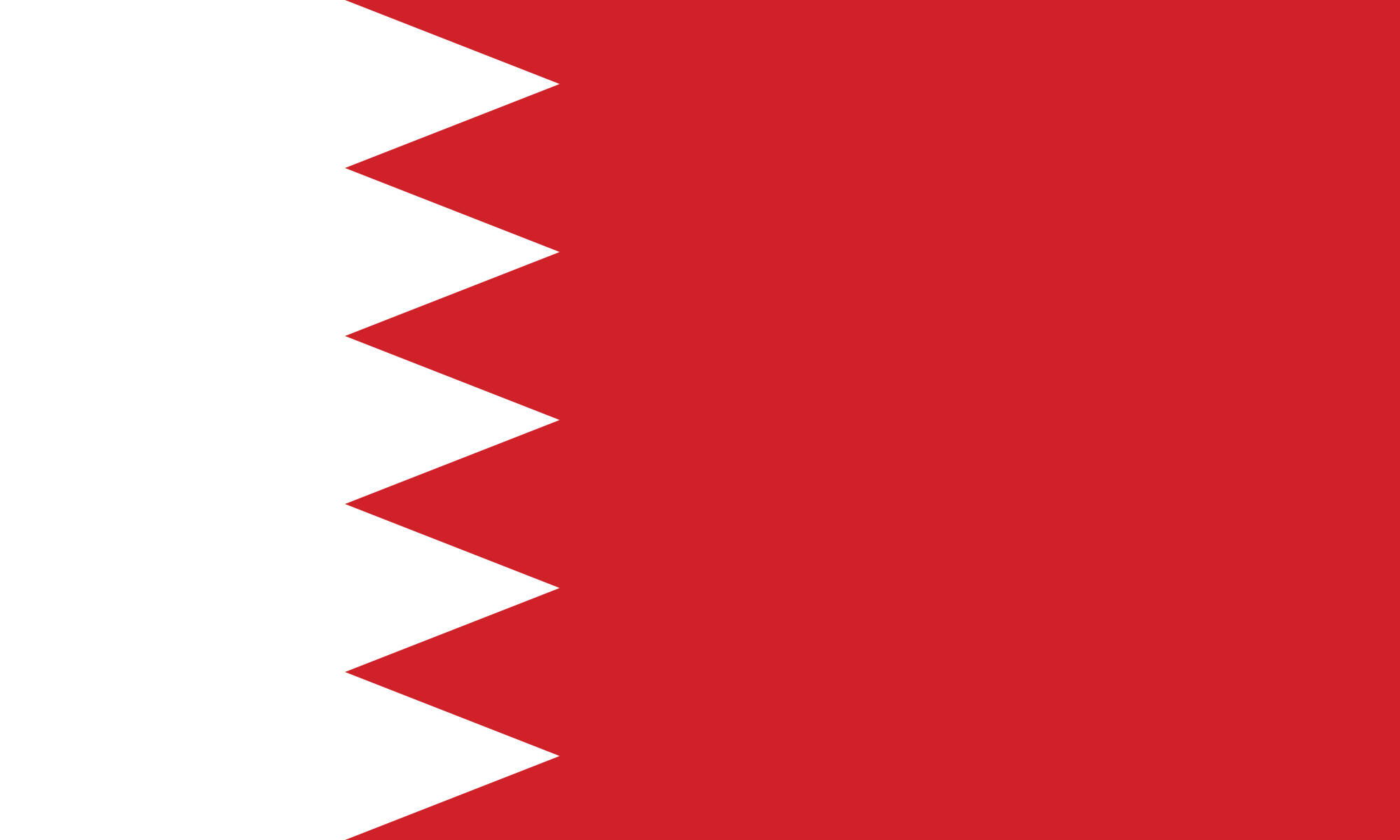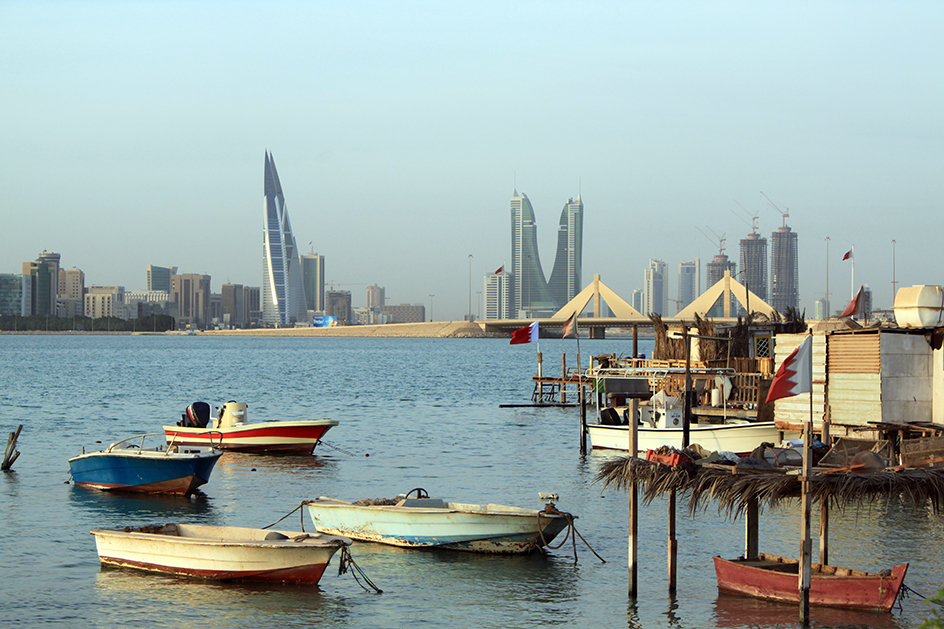Bahrain << bah RAYN >> is an island country in the Arabian Gulf (commonly known as the Persian Gulf in non-Arab countries) in southwest Asia. Barren desert covers most of the more than 30 islands that make up this Arab land. The main island is also called Bahrain.
Bahrain has been a major center of trade and communications in the Arabian Gulf area for many centuries. But the country remained underdeveloped until the discovery of petroleum on the island of Bahrain in 1932. Today, the nation has one of the highest standards of living in the gulf area. Bahrain was a British protectorate from 1861 to 1971, when it gained independence. Manama is the capital, largest city, and chief commercial center (see Manama).

Government.
In 2001, Bahraini voters approved a national charter to reform their country’s government. The reforms, which went into effect in 2002, changed Bahrain from an emirate, ruled by an emir with absolute power, to a constitutional monarchy, with a king and a two-house legislature. The people elect the members of one house in the parliament, and the king appoints the members of the other house. Both men and women are allowed to vote and run for office.

People.
Most of Bahrain’s people live in cities and villages in the northern part of the island of Bahrain. Arabs make up about 80 percent of the population. The country also has large groups of Indians, Iranians, and Pakistanis. Most of the people are Muslims, and Islam is the national religion. Many of the Muslims belong to the Shī`ah branch of Islam (see Shī`ites). Most of the rest, including members of the ruling family, belong to the Sunni branch (see Sunnis).
Most Bahrainis live in houses or apartments, but some live in traditional barastis, wooden framed houses with walls and roofs made of palm branches. The nation has one of the best electric supply systems in the Middle East. As a result, air conditioners and refrigerators are common in Bahrain. Clothing styles, especially among the young, reflect Western influence. But many still wear Arab dress. Chief foods include dates, fish, fruit, milk, and rice.
Arabic is the official language of Bahrain. Many people also speak English and Farsi. Newspapers and magazines are published in both Arabic and English.
Bahrain has one of the highest literacy rates in the Arabian Gulf area. Education is free, and children are required by law to attend primary school. The University of Bahrain and Arabian Gulf University provide higher education. The government of Bahrain provides free medical care.
Loading the player...Bahraini contemporary music
Land and climate.
Most of Bahrain consists of desert. The island of Bahrain makes up almost the entire country. Other islands include Al Muharraq, Sitrah, and Umm Nasan. Bridges connect the principal islands. A causeway links Bahrain to the Saudi Arabian mainland.
Many freshwater springs provide ample drinking water for the northern coast of the island of Bahrain. Farmers use much of this spring water to irrigate their land. Northern Bahrain receives most of the little rain that falls. The rainfall averages about 3 inches (8 centimeters) a year, most of it during the winter months.
Bahrain has hot, humid summers. The temperature often rises above 100 °F (38 °C) from June to September. Winter temperatures are mild, ranging from about 50 °F (10 °C) to about 80 °F (27 °C).
Economy.
Bahrain’s economy depends largely on the petroleum industry. Bahrain has only a small petroleum supply. But its large oil refinery, on the island of Sitrah, processes all the country’s crude petroleum, as well as much oil that comes from Saudi Arabia by pipeline. Bahrain also has valuable natural gas reserves.
Bahrain ranks as a major banking center for the Arabian Gulf region and as the financial center of the Middle East. Many large companies have their Middle East headquarters in Bahrain. Ship repairing is an important industry. Manufactured goods include aluminum and aluminum products, ammonia, iron, liquid natural gas, methanol, and refined petroleum products. Many Bahrainis hold government jobs.

Agriculture plays a small role in Bahrain’s economy. Farmers grow dates, tomatoes, and other fruits and vegetables on irrigated land in northern Bahrain. Some farmers raise cattle, poultry, and sheep.
Modern warehouse and port facilities help make Bahrain a major trading center of the Arabian Gulf area. Petroleum products are the chief exports. Bahrain imports crude oil, food, industrial machinery, and motor vehicles. Bahrain’s trading partners include China, Germany, Japan, Saudi Arabia, the United Arab Emirates, and the United States.
An airport on Al Muharraq links Bahrain to other nations. The government operates most radio and television stations in Bahrain.
History.
Dilmun, a prosperous trading civilization from about 2000 B.C. to 1800 B.C., once occupied the area that is now Bahrain. Portugal controlled Bahrain during the A.D. 1500’s, and then Persia (now Iran) ruled the country. In 1782, the Al-Khalifa clan, a group of Arabs from what is now Saudi Arabia, drove the Persians from Bahrain. The clan has ruled the country ever since.
During the early 1800’s, the United Kingdom helped the Bahrainis fight invaders from Saudi Arabia. Bahrain became a British protectorate in 1861. In return for protection, Bahrain gave control of its foreign affairs to the British.
During the 1920’s and 1930’s, Bahrain established modern social welfare programs. The government built hospitals and schools and provided better working conditions for laborers. In 1932, petroleum was discovered on the island of Bahrain.
During the late 1940’s and the 1950’s, many Bahrainis demanded more participation in their government. The government granted minor political reforms after widespread rioting broke out in 1956. In 1970, the emir, Sheik Isa bin Salman Al-Khalifa, turned over some of his power to a Council of State, now the Cabinet.
The United Kingdom withdrew from the Arabian Gulf in 1971. Later that year, Bahrain gained independence and joined the Arab League and the United Nations. In 1973, Bahrain adopted a constitution that created a national assembly made up of representatives elected by the people. Sheik Isa disbanded the national assembly in 1975. During the 1970’s and early 1980’s, Bahrain’s rapid economic development attracted many immigrants. In 1981, Bahrain and other states of eastern Arabia formed the Gulf Cooperation Council (GCC) to work together in such matters as defense and economic projects (see Gulf Cooperation Council).
In August 1990, Iraq invaded Kuwait. In 1991, United States and allied forces fought a war to expel Iraq’s troops from Kuwait. In the war, many U.S.-led attacks were launched from U.S. military bases in Bahrain. As part of the GCC, Bahrain took part in the bombing of Iraqi military targets and in the ground offensive that liberated Kuwait. From 2003 to 2011, U.S. forces based in Bahrain participated in another war against Iraq. See Iraq War; Persian Gulf War of 1991.
During the mid-1990’s, a number of Shī`ite-led antigovernment protests broke out in Bahrain. The protesters called for the national assembly to be restored and for free elections.
In 2001, Bahrain held a referendum on a National Action Charter. This document called for Bahrain to become a constitutional monarchy with an elected legislature. Bahraini voters overwhelmingly approved the charter. In February 2002, the emir, Sheikh Hamad Bin Isa Al Khalifa, declared Bahrain to be a constitutional monarchy and himself to be king. The first municipal and legislative elections were held later that year.
In 2011, antigovernment protests began in Manama. The protesters sought democratic reform and the removal of the king. Encounters between protesters and security forces turned violent. The king declared a state of emergency and brought in troops from Saudi Arabia and the United Arab Emirates for added security. The protests in Bahrain followed similar unrest in Tunisia, Egypt, and elsewhere in the region.
In January 2012, the king announced constitutional reforms giving the elected parliament greater power. But protests continued, and the government banned all demonstrations later in the year. In 2013, the government began talks to end the unrest. Nevertheless, Shī`ite opposition groups, including al-Wefaq, the largest group, boycotted the 2014 parliamentary elections, because of what they said was a lack of progress toward greater democracy. Al-Wefaq filled no seats in parliament for the first time since 2006.
Parliamentary elections were held in 2018, but the government banned opposition parties from running in them. In addition, a Bahraini court sentenced opposition leader Ali Salman to life in prison on charges of spying for Qatar, a nation with which Bahrain had cut off diplomatic relations in 2017. In 2020, Bahrain became one of several Arab nations to sign an agreement, known as the Abraham Accords, to normalize relations with Israel. Bahrain restored its diplomatic relations with Qatar in 2021.
A new parliament was elected in Bahrain in 2022. But opposition party candidates again were banned from running.
